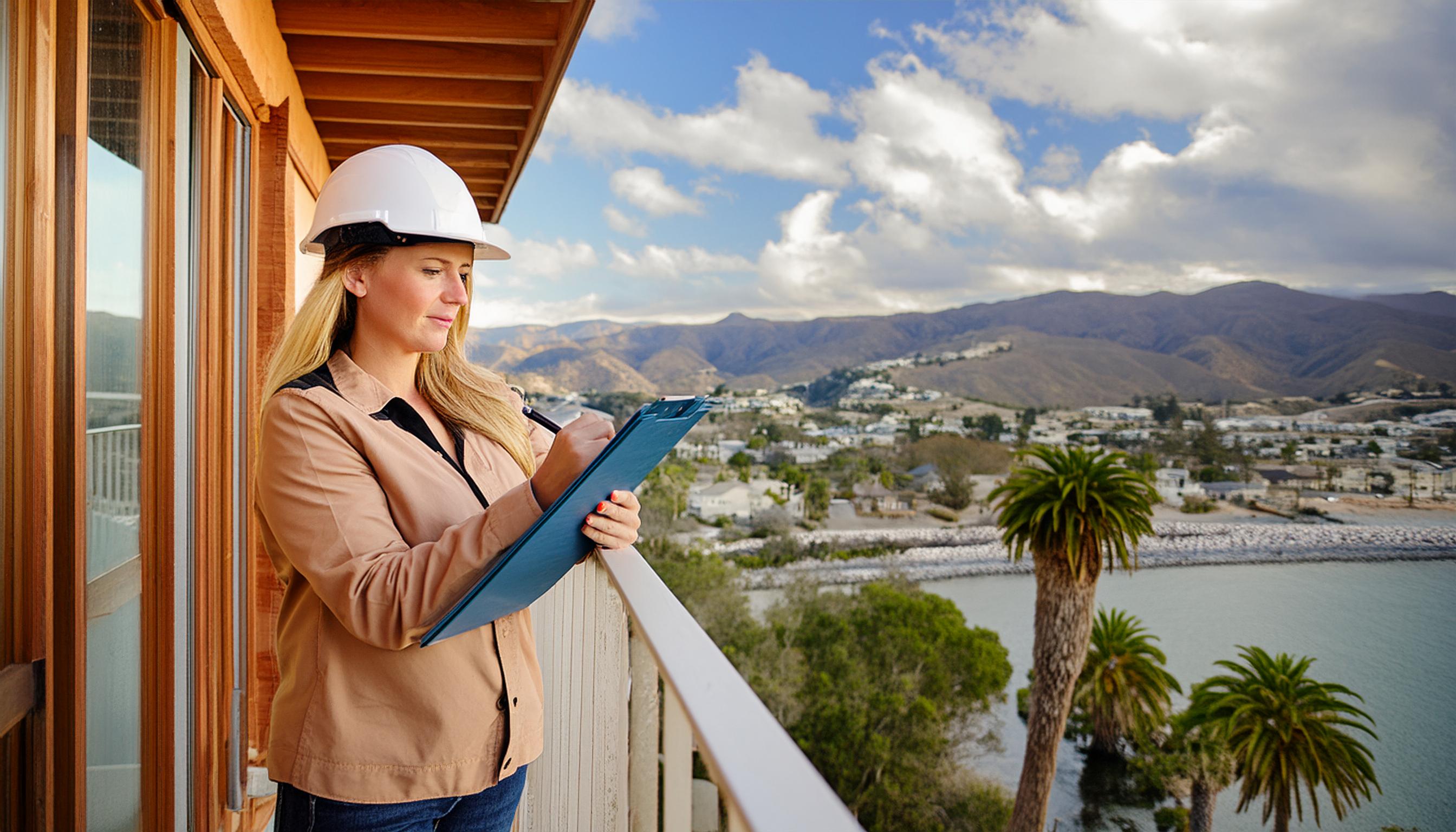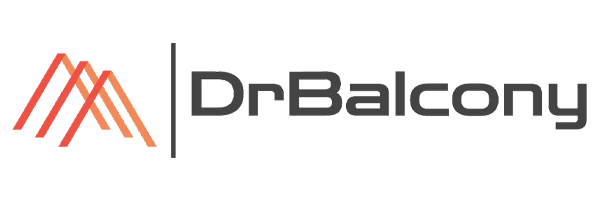12 Critical Questions Every Property Owner Must Ask Before Hiring a Balcony Inspector

Table of Contents
In the world of structural safety, choosing the right balcony inspector can mean the difference between peace of mind and potential disaster. This comprehensive guide explores the essential questions that property owners need to ask, combining technical expertise with practical insights.
1. Professional Qualifications: The Foundation of Expertise
Professional credentials form the bedrock of reliable balcony inspection services. A qualified inspector’s expertise can detect early warning signs and prevent critical failures before they occur. Their ability to interpret complex structural systems while adhering to safety standards makes them invaluable guardians of elevated element safety.
Essential qualifications include:
- Professional Engineering (PE) license
- International Code Council (ICC) certifications
- Specialized training in exterior elevated elements (EEE)
- SB721 compliance expertise for California properties
2. Understanding Inspection Costs: Investment in Safety
Balcony inspection costs represent a crucial investment in property safety and compliance. While basic inspections typically range from $200 to $600 per balcony, comprehensive structural assessments may cost between $800 and $1,500. These costs vary based on several key factors:
Property characteristics directly impact inspection costs:
- Total number of balconies and elevated elements
- Building height and accessibility
- Structural complexity
- Required testing methods
- Documentation requirements
3. The Inspection Process: A Systematic Approach
Professional balcony inspections follow a methodical process designed to evaluate every critical component. Modern inspection techniques combine visual assessment with advanced testing methods to ensure thorough evaluation of structural integrity.
The comprehensive inspection protocol includes:
- Detailed visual assessment of all structural elements
- Moisture content testing using specialized equipment
- Load-bearing capacity evaluation
- Railing stability verification
- Drainage system assessment
- Waterproofing integrity testing
4. Timeline Expectations: Planning for Thoroughness
Understanding the inspection timeline helps property owners plan effectively and minimize disruption to residents. A thorough inspection requires careful attention to detail and cannot be rushed. Most inspections require 1-2 hours per balcony, though complex cases may need additional time.
Factors affecting inspection duration include:
- Number and complexity of balconies
- Access requirements
- Weather conditions
- Required testing methods
- Documentation needs
Contact DrBalcony for a professional inspection!
Ensure the safety of your balcony and living space with DrBalcony - We're a Tech Engineering firm that specializes in California SB326 & SB721 balcony inspections. Over 300+ completed projects in California.
Request A Free EstimateClick To Call5. Documentation Requirements: Creating a Safety Record
Professional documentation serves as both a legal record and a maintenance guide. Comprehensive reports provide valuable insights into the current condition of elevated elements and offer guidance for future maintenance.
Essential documentation includes:
- Detailed structural assessment reports
- Photographic evidence of findings
- Engineering analysis results
- Maintenance recommendations
- Compliance certificates
- Cost estimates for repairs
6. SB721 Compliance: Meeting Legal Standards
For California property owners, understanding SB721 requirements is crucial. This legislation mandates specific inspection protocols and documentation standards for exterior elevated elements.
Key SB721 requirements include:
- Mandatory inspection every six years
- Specific documentation standards
- Clear reporting deadlines
- Compliance verification processes
7. Insurance Coverage: Protection and Professionalism
Professional balcony inspectors must maintain comprehensive insurance coverage to protect both their work and property owners’ interests. This critical aspect of professional service ensures accountability and risk management throughout the inspection process.
Essential insurance coverage should include:
- Professional liability insurance with adequate coverage limits
- General liability insurance for on-site activities
- Workers’ compensation coverage for inspection teams
- Additional coverage specific to structural assessment work
8. References and Track Record: Proven Expertise
Professional references and documented experience provide crucial insights into an inspector’s capabilities. Expert balcony inspectors should readily provide evidence of their successful track record and client satisfaction.
Valuable reference materials include:
- Detailed case studies of similar properties
- Client testimonials and reviews
- Documentation of completed projects
- Before-and-after evidence of successful assessments
9. Emergency Response Protocols: Managing Critical Findings
Emergency situations require immediate, professional response protocols. Expert inspectors maintain clear procedures for handling critical discoveries during inspections. Their emergency response system should demonstrate both efficiency and effectiveness.
A robust emergency response system includes:
- Immediate notification procedures for critical findings
- Emergency stabilization methods and resources
- Documentation of urgent conditions
- Coordination with qualified repair contractors
- Clear communication channels with property owners
10. Preventive Maintenance Programs: Long-term Protection
Effective maintenance programs extend beyond initial inspections to ensure ongoing structural integrity. Professional inspectors should offer comprehensive maintenance solutions that protect property investments over time.
Key maintenance program elements include:
- Regular inspection schedules
- Preventive maintenance guidelines
- Monitoring protocols for vulnerable areas
- Cost-effective maintenance strategies
- Early intervention recommendations
11. Technology and Tools: Modern Inspection Methods
Advanced technology plays a crucial role in modern balcony inspection. Professional inspectors utilize sophisticated equipment to detect potential issues that might escape visual inspection alone.
Essential inspection technology includes:
- Thermal imaging cameras for moisture detection
- Digital moisture meters
- Structural analysis software
- Advanced reporting systems
- 3D modeling capabilities for complex structures
12. Repair Recommendations: From Assessment to Action
Professional inspectors provide clear, actionable repair recommendations based on their findings. These recommendations should prioritize safety while considering cost-effectiveness and long-term durability.
An effective repair recommendation process includes:
- Detailed assessment of required repairs
- Prioritized repair schedules
- Cost estimates for necessary work
- Qualified contractor recommendations
- Quality control measures
- Follow-up inspection protocols
The Critical Role of Professional Balcony Inspection
Research demonstrates that properly maintained balconies can maintain their structural integrity for over three decades, while neglected structures may fail in less than half that time. Professional inspection serves as the cornerstone of balcony safety and longevity.
Statistics reveal concerning trends:
- 70% of balcony failures relate to water damage
- Regular inspections can prevent 85% of major structural issues
- Professional maintenance programs extend balcony life by 40-50%
Contact DrBalcony for a professional inspection!
Ensure the safety of your balcony and living space with DrBalcony - We're a Tech Engineering firm that specializes in California SB326 & SB721 balcony inspections. Over 300+ completed projects in California.
Request A Free EstimateClick To CallEnsuring Safety Through Professional Expertise
Professional balcony inspection represents a crucial investment in property safety and value. The comprehensive approach provided by qualified inspectors ensures thorough evaluation, documentation, and maintenance planning for all elevated elements.
Contact DrBalcony to schedule a professional inspection by certified experts. Their team delivers:
- Comprehensive structural assessments
- Detailed documentation
- Expert guidance
- Long-term maintenance solutions
- Full compliance with current regulations
Contact DrBalcony to protect your property investment and ensure resident safety with professional balcony inspection services from DrBalcony. Our expertise provide the assurance needed for long-term structural integrity and regulatory compliance.
FAQ Section: Top Questions & Answers
My property is well-maintained. Do I really need SB-326/SB-721 inspections?
YES! Even with excellent maintenance, hidden issues can develop due to construction errors, material flaws, or severe weather exposure. Inspections are about ensuring those don’t turn into major problems.
Our balconies were inspected a few years ago – isn't that enough?
Unfortunately, no. California laws mandate inspections on a set schedule, often every 6 years. Deterioration can happen quickly, making regular assessments essential.
Can I use my regular handyman for the balcony inspection?
It’s not recommended. Unless they hold specific licenses (architect, structural engineer, etc.) their inspection won’t be considered valid for SB-326/SB-721 compliance.
What if the inspection uncovers major issues?
First, don’t panic! Early detection often means less extensive (and expensive) repairs are needed. Work with your inspector to prioritize fixes, and explore if they offer repair services for a streamlined solution.
I'm worried about the cost of inspections. Are there any resources to help?
Start by getting detailed quotes from multiple companies. Factor in that proactive inspections help you avoid even bigger costs down the line due to neglected problems. Some property management associations offer guidance on budgeting for balcony compliance.
